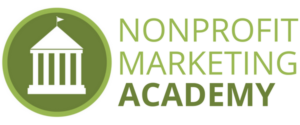As nonprofit leaders, we want to build natural, friendly relationships with donors so they know how much we appreciate their support and contributions. In doing so, we should take the extra time needed to personalize a thank-you letter. Because after all, a generic gift receipt letter is about as impersonal as you can get, isn’t it?

People who donate to nonprofit organizations have many reasons for giving – from supporting causes that have touched their lives to making a difference in the community. Americans are giving to the tune of nearly $400 billion a year to charity.
On the less emotional side of donations is the tax implications of a donation. Anyone who donates to your 501c3 nonprofit may be entitled to a tax deduction, and there is specific information your nonprofit needs to provide in order for the donor to be able to claim the deduction. So, while sending a personal thank-you letter will certainly convey the importance of your relationship with the donor and acknowledge their gift in a special way, make sure you include what they need for their charitable contribution tax deduction. They are eligible for the deduction and they deserve it.
Contemporaneous Written Acknowledgement (CWA)
Receipts for charitable donations must be of a more formal nature when the contribution is greater than $250, according to the IRS and Section 170. The formal name of the receipt is the Contemporaneous Written Acknowledgment.
There are two common approaches for providing these receipts to donors. If you want to separate your personal note from the CWA, consider including the CWA in the envelope as a separate receipt. Alternatively, sending out CWAs can be done at the beginning of the new year at the same time you send tax information to vendors, contractors, and employees.
Your donors are not able to use their canceled check, credit card statement, or your personal thank-you letter as sufficient record of their donation. Although it is the donor’s responsibility to ensure they request and receive the CWA, nonprofits can make life easier for their donors if they make the issuing of CWA receipts an automatic process for all donations.
What information should be included in the CWA? The IRS states the CWA should include the following:
- The name of the charity receiving the gift
- The amount of the cash contribution
- A description (but not the value) of any non-cash contribution
- A statement that no goods or services were provided by the charity (if that were the case), or conversely, a description and good faith estimate of the value of goods & services that the charity provided in return for the gift
- A statement that goods or services, if any, that a charity provided in return for the gift was entirely of intangible religious benefit
Keep up the great work with creating personalized content to keep donors engaged. However, don’t forget to think about the entire buyer journey, and find other ways to add value to their overall experience with your nonprofit.
Do you have a question about this process? Join the Nonprofit Marketing Roundtable – our free online Facebook community – and ask a peer or one of our team members your question.





